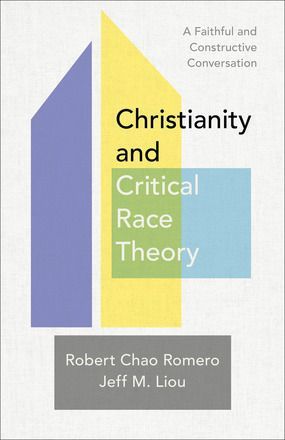Christian Nonviolence, part 1
Following the Matthew Intro sermon, an argument for Christian Nonviolence

In my sermon introducing the Gospel of Matthew on July 31, I made the claim that Matthew makes a pretty clear argument for Christian Nonviolence. I went on to say, in the Q & A, that other parts of Scripture are not so clear about violence, and Christians can reasonably disagree. But, Matthew’s argument is pretty straightforward.
In the next couple of blog posts, I want to pick up on and expand the argument for Christian Nonviolence. I want to be clear about my perspective: I tend to lean toward Christian Nonviolence, but I am not a full-throated advocate, or some one who would be willing to judge sincere Christians who display courage, grace, and self-sacrifice in using violence in defense of others or for the sake of their nations. I think violence is a difficult theological question, and I would ask for grace for me and I hope to extend grace to you where we disagree.
I also think that Christian Nonviolence is an important position in church tradition and needs to have a place at the table of Christian views of war and justice. If we reject Nonviolence out of hand, then we are dismissing important and valuable tools for waging war against our true enemies. Anyway, here are excerpts from a talk I gave a few years ago at a seminar about Christians and War, at Cole Community Church in Boise. Enjoy! Let me know if you have questions or pushback. Finally, none of these ideas are original with me, so see the “Resources” at the end of the second post for more information and to see whose work (in addition to Jesus and the New Testament) influenced my thinking.
Let me start by outlining for you my argument - there are other ways of defending nonviolence, but this is the most compelling argument to me: (1) Christian Nonviolence is clearly spelled out in the New Testament, focuses on the example and person of Jesus, and was followed by the Early Church; (2) Christians are primarily citizens of the Kingdom of God, and not of the kingdoms of this world; (3) the weapons of the Kingdom of God are suffering and death, not violence and war - violence and war may serve the interests of the kingdoms of this world, but they do not serve the interests of God’s Kingdom.
1. Christian Nonviolence in Christ, in the New Testament, and in the early Church
There may be forms of pacifism that are idealistic, or pacifists who live in Airy-Fairy Land, where the trees grow lollipops, and it rains root beer, and we can solve every conflict with assertive speech and active listening - where if we just understood one another, then we’d never really have to fight. I have no doubt that those pacifists exist. That is not the position of Christian Nonviolence. That is not the position of Jesus or of the New Testament, nor the position of those passages that invite us to practice nonviolence. Jesus and the entire New Testament is exceptionally realist.
Jesus gave up His position at the right hand of the Father in order to come and deal with the problems of sin and evil once and for all. More than any other person in human history, Jesus has borne the weight of sin, dealt with the alienation, stared evil in the face, and died in an explicit confrontation with all the powers of evil. Jesus is aware of evil: he knows its depth, its weight, the damage it does, the ways it destroys societies, families, ways of life, individuals, etc. Jesus knows evil.
And Jesus’ position in the face of evil is to suffer violence rather than to inflict it. Jesus radically changes the terms of the conflict with evil by taking on violence inflicted by sinful persons and overseen by evil powers—he takes the death and violence and by doing so he defeats those powers. In Christ, suffering violence wins, and inflicting violence loses. The powers that cause violence on others end up doing damage to their own cause while the Kingdom of God advances by suffering. Christ wins in his death.
This idea is not new to us, but its full implications might be, so let’s sit here for a bit. First, Christ wins in his death because he pays the sacrifice for the rest of us and so he expands the Kingdom. Now we don’t have to be kept out of the Kingdom because of our sin. Justice is served, but not against those who had earned punishment. God gives of Himself so that the Kingdom can expand. Straightforward atonement theology.
Second, Christ wins in his death because he remains faithful to what God had called him to in the face of evil. Rather than resorting to evil to defeat evil, he entrusts himself to the Father and lets the Father determine the outcome. Christ submits himself to the Father, to the point of suffering and death, even death on a cross; and so, in the face of evil, Christ is the completely faithful one. This is a victory in the sense that evil does not cause Jesus to become evil; instead he remains righteous.
Third, Christ wins in his death because his death exposes evil for what it is. Evil is shown to be evil—Rome is not good, the Jewish leaders opposed to Jesus are not right, our sin that puts Jesus on the cross is not justified. We can’t pretend anymore. Our evil is exposed and shown to be evil. The veil is pulled back and because of the cross we know how deeply wretched we are: Rome is so evil that it mocks, tortures, and crucifies the Creator of the world; the Jewish leaders are so evil that they betray their own King and turn him over to a people who can and will violently kill him so that they can protect their own territory; we are so evil that we participate in their evil, and our evil is so heavy and destructive that it takes the Son of God Himself to bear the weight of it. In his suffering and death, Jesus wins because he shows that evil is really evil, which gives all of us at least a chance to repent.
Fourth (and this is the last point I’ll make here), Christ wins in his death because his death works with the way He and the Father created the world. Violence works against creation, suffering works with it. Yoder says that Christ’s death works “with the grain of the cosmos” - Jesus is both Lord and Word of the cosmos, so he ought to know. Creation was made by a God of self-giving Love, and God wrote His character into His creation, such that violence works against creation, while self-giving and suffering work with it. Lewis calls it the “deeper magic from before the dawn of time”. Violence works against this deeper magic, while suffering lets it loose. By trusting outcomes to God, we give space for God to do what God does—raise the dead! When we die in faithfulness, we allow God to work resurrection life. When we hold onto our lives, we lose them, but when we give up our lives for the sake of the Kingdom and trust God’s work, He raises us to new life. Creation works by this kind of self-giving, and so Christ wins in His death.
Again, Jesus faces evil and defeats it by suffering violence, not by inflicting it.
The New Testament uses Jesus as the great example of how to face evil. There are ever so many passages that we could use to talk about enduring suffering for the sake of the Kingdom - in James, Hebrews, Revelation, Acts, and on and on. I will look at two, and then tie in our 2 Corinthians teaching from 2013-2014.
1 Peter 2 compares the suffering of servants to the suffering of Christ, whose faithful suffering heals us. Christ did not respond in violence, His suffering brings healing, so the rest of us are called to suffer even in the face of violent oppressors. When evil is unjust, we are still called to suffering, not violence. Peter says that suffering “finds favor with God” (v 19), and that maybe by suffering the Christian community can cause their opposition to glorify God (v 12). Christ’s suffering is redemptive, and Peter suggests that the suffering of the Christian community can be used by God for redemptive purposes. It keeps the faithful sufferer in the right, it exposes the evil of the oppressors and gives opportunities for repentance, and it works with the way God created the world.
Perhaps the clearest statements for Christian Nonviolence in the New Testament are found in Jesus’ teaching, and most concentrated are in his Sermon on the Mount. “Don’t murder, or even call your brother a fool”; “don’t resist an evildoer, but turn the other cheek”; “if an opponent wants your shirt, give him your tunic also”; “if a soldier forces you to go one mile, go two”; “don’t just love your neighbor, but also love your enemy”. Against Augustine, whom I deeply respect and admire, Christian Nonviolence does not think that our love for enemies can be acted out in war. Again, Jesus showed us what love for enemies looks like when he prayed for forgiveness for his enemies while dying for them. By Augustine’s logic, and by the logic of fighting a Just War for love of enemies, Jesus should have prevented his enemies from killing him by killing them first so that they would not take on the guilt of killing the Son of God. Would that have been more loving than dying for them? Not according to Jesus, who says that the great act of love is to die for one’s friends. One implication is that it’s more loving to take on another’s guilt than to prevent them from incurring it.
So, Jesus and the New Testament clearly work from the perspective of Nonviolence. The early church certainly believed that the New Testament perspective was one of nonviolence, even when they finally put together a Just War perspective. Augustine, who defends Just War, does not think that Just War is the position of the New Testament—nonviolence clearly is. Augustine says that times have changed and that Christians need to articulate a perspective on war in his day, but nearly all theologians prior to Augustine very clearly opposed war. Christians were usually not allowed to serve in the Roman army, partly because a soldier typically had to worship the Roman gods, but also because it meant killing. Christian theologians like Tertullian, Gregory of Nyssa, Hippolytus, and Cyprian all opposed Christians killing or going to war. Until Constantine, Christian theologians and bishops were almost universally opposed to killing and war. Nonviolence gets discarded or forgotten in the Christian tradition when the Christian’s citizenship gets confused. Which leads me to my second point (in the next post).
Blessings,
Josh










